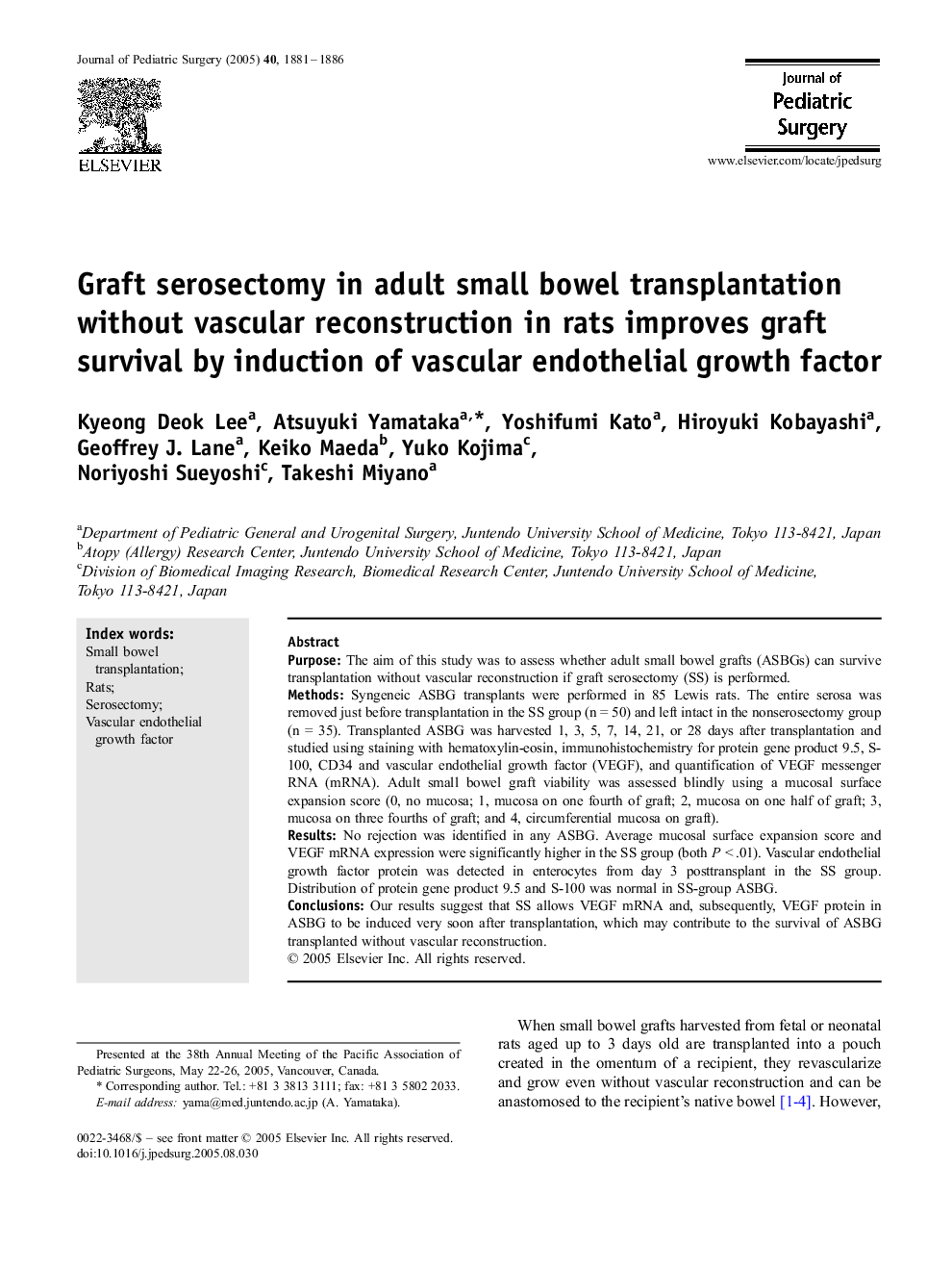| Article ID | Journal | Published Year | Pages | File Type |
|---|---|---|---|---|
| 4160870 | Journal of Pediatric Surgery | 2005 | 6 Pages |
PurposeThe aim of this study was to assess whether adult small bowel grafts (ASBGs) can survive transplantation without vascular reconstruction if graft serosectomy (SS) is performed.MethodsSyngeneic ASBG transplants were performed in 85 Lewis rats. The entire serosa was removed just before transplantation in the SS group (n = 50) and left intact in the nonserosectomy group (n = 35). Transplanted ASBG was harvested 1, 3, 5, 7, 14, 21, or 28 days after transplantation and studied using staining with hematoxylin-eosin, immunohistochemistry for protein gene product 9.5, S-100, CD34 and vascular endothelial growth factor (VEGF), and quantification of VEGF messenger RNA (mRNA). Adult small bowel graft viability was assessed blindly using a mucosal surface expansion score (0, no mucosa; 1, mucosa on one fourth of graft; 2, mucosa on one half of graft; 3, mucosa on three fourths of graft; and 4, circumferential mucosa on graft).ResultsNo rejection was identified in any ASBG. Average mucosal surface expansion score and VEGF mRNA expression were significantly higher in the SS group (both P < .01). Vascular endothelial growth factor protein was detected in enterocytes from day 3 posttransplant in the SS group. Distribution of protein gene product 9.5 and S-100 was normal in SS-group ASBG.ConclusionsOur results suggest that SS allows VEGF mRNA and, subsequently, VEGF protein in ASBG to be induced very soon after transplantation, which may contribute to the survival of ASBG transplanted without vascular reconstruction.
